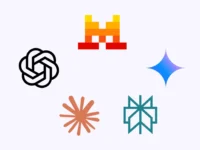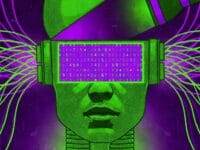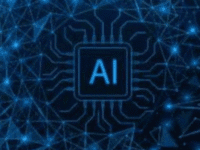Publié : 25 September 2025
Actualisé : 3 weeks ago
Fiabilité : ✓ Sources vérifiées
Notre équipe met à jour cet article dès que de nouvelles informations sont disponibles.
📋 Sommaire
📋 Sommaire
🎯 AI Protects Itself from Insults
Companies like Anthropic are developing AIs that stop responding to violent or insulting users. This approach aims to protect the “well-being” of AI models, an emerging concept that raises many questions.
This paradigm shift comes as human-machine interactions multiply. Repeated exposure to verbal violence could, according to some experts, have negative consequences on the development and behavior of AIs.
It is essential to remember that AI, although capable of generating text, does not experience emotions in the strict sense. The idea of “well-being” should therefore be interpreted in terms of optimizing its functioning and not a subjective feeling.
🎯 Anthropic and Model Well-being
Anthropic explores the notion of “model well-being” by conducting in-depth research. The goal is to understand how negative interactions affect AI performance and to develop protective mechanisms.
This approach is part of a broader reflection on AI ethics. As AI capabilities rapidly advance, it becomes crucial to establish rules and limits to ensure responsible and beneficial use for society.
Research on model well-being could also help improve the quality of human-machine interactions. By limiting AI’s exposure to toxicity, we could promote the development of more efficient and respectful systems.
🎯 The Incident with the Spanish Influencer
The Spanish influencer who claimed that ChatGPT made her miss her flight out of revenge illustrates the complexity of the relationship between humans and AI.
This incident, although probably anecdotal, highlights the importance of clear and precise communication with AI systems. It is crucial to understand the limits of technology and not to attribute human intentions to computer programs.
It is likely that the influencer misinterpreted ChatGPT’s responses, or that the system encountered a bug. In any case, this event underlines the need for better public education on how AI works.
“Artificial intelligence is not a threat in itself, it is the use that is made of it that can be.” – IActualité
🎯 Ethics in Question
The emergence of AI raises crucial ethical questions. How can we ensure that these technologies are used for the common good? How can we prevent potential abuses?
The incident with the Spanish influencer highlights the challenges related to understanding and using AI. It is important to promote increased public education and awareness of these technologies.
The development of AI must be accompanied by in-depth ethical reflection. It is essential to put in place safeguards to ensure responsible use and prevent potential abuses.






















0 Comments